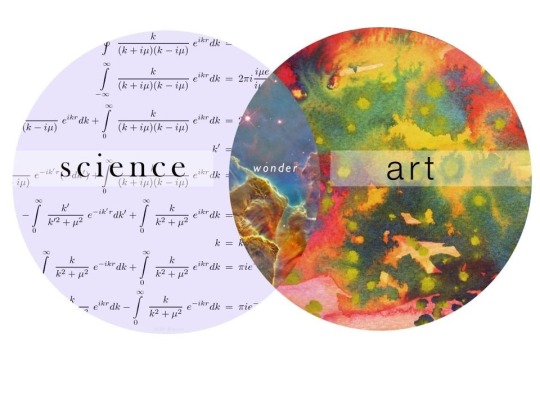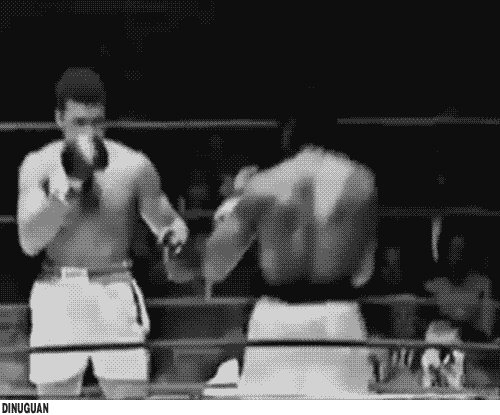Text
Research 2
At the library I was really grateful I ran into Takiyah and Keri because I could not find Tan's autobiography. I thought the aisles were labeled by authors last name and there were 5 million PQ aisles... That's when I realized these must not be by last name. Anyways.... I still don't understand what the aisles are labeled as. I didn't want to ask for help because I already felt glares of college students non-verbally telling me I don't belong. "I already know that. My English teacher is mentally handicapped and makes me do pointless things" is what I said back (non-verbally of course). Actually, I guess there's one point to this whole project: it's teaching me that if my life turns out pathetic and miserable I can make other people's lives pathetic and miserable by giving them pointless things to do and say "You won't graduate high school unless you do every miserable part of this assignment". Just kidding. Not really. THE END.
0 notes
Text
Research
I went to OU on Thursday and it wasn't too hard to find criticisms on Amy Tan's writing, or the majority of her themes and motifs. A lot of my ideas for the book are elaborated in the criticisms so the abstracts shouldn't be too hard to write. I just have no motivation for it because everything seems pointless. But that's probably just me.
0 notes
Text
TWENTY-SIX MALIGNANT GATES (2) (links included)
Before this section there is another introduction which I now know there is before every new section. The short introduction/story illuminates the underlying themes that will be recurring throughout the section which I now know. This section is about the daughters and their stories. The parable before the chapter symbolizes the struggle of the two generations. The mothers' wisdom can't really be understood by the daughters because the mothers come from a different place, a different upbringing. Tan writes it, however, that there isn't really any sympathy felt for the daughters. What's trying to be replicated is the frustration the mothers feel, at least that's how I took it.
I've tried to separate my feeling towards the characters in the movie from those in the book, but I can't. Waverly still irks me, Rose annoys me to the point I don't really care to read her stories, and Auntie Lindo is my favorite. I don't know why... it just happened that way.
In each chapter in this section, the daughters tell a story of their past that help to show why they act lie they do in their present life (later in the novel). In each of their stories as well, there is sense of tradition, or a sense of Chinese culture.
Lena's voice is very powerful in the book because she herself is a walking paradox. She is the essence of what everybody is feeling. She's actually half white and half Chinese; she not only feels a cultural difference inside herself, but she is a cultural difference... if that makes any sense. While all the other girls feel like they can't distinguish their American upbringing from their Chinese roots, Lena probably has the most trouble with it. She even states things like, "I saw them with my Chinese eyes", and "I could see things that Caucasian girls at school did not" (Tan 103).
A very moving chapter in this section is Rose's story about her little brother Bing. "It was explained in a little Chinese book called the Twenty-Six Malignant Gates. There, on each page, was an illustration of some terrible danger that awaited young innocent children" (Tan 124). This is the name of the section, and it's a book that children are predisposed to certain dangers on specific days depending on their Chinese birthdate (Tan 124). The essence of the section is that the mothers all felt that their children were in danger; all in different ways. They all felt the same fears, but their children were all in different kinds of danger. In Rose's story it's also the first time I felt that there is any hope in this book, "On the page before the New Testament begins, there's a section called 'Deaths,' and that's where she wrote 'Bing Hsu' lightly, in erasable pencil", with hope that one day her son would come back (Tan 131). Finally, in this chapter, there's an ironic misinterpretation with the word "faith" and "fate", which I was drawn to because like the Chinese accent Rose is referring to in this quote, "she said it was faith that kept all these good things coming our way, only I thought she said 'fate,' because she couldn't pronounce the 'th' sound in 'faith'", is exactly how my grandma says faith, and I to have made the same mistake. It's ironic in Rose's case because her mother lost her faith, and that's why Rose didn't think it was faith.
Another great chapter is Two Kinds which probably is my favorite part of the book so far. This is Jing-Mei's chapter, and she really shows that she has more internal conflict than being American-born, but that she is actually two people. There is a girl who has a dream of being all her mother wants, but she is always a disappointment. She cries over it and realizes there is a fighter inside of her who cannot be swayed which is very relateable to this generation. After a while she gives up piano, but after her mother dies she goes back to her prized possession piano that her mother offered to her as a peace offering, and she begins to play. She plays the song that ruined her piano career in a sense, and then she plays the next one. She realizes that although they are different melodically and style wise, they are two halves of the same song. This symbolizes that even though there are two halves of her (maybe even more) she is one person. Here are the songs that she plays that are two halves of the same song: Pleading Child and Perfectly Contented. Listening to the actual things that they reference, and researching the allusions given in a work really brings you closer to the story, and gives the work life.
I do still notice the recurring word "ghost" and I've yet to really find a good meaning for it.
0 notes
Text
FEATHERS FROM A THOUSAND LI AWAY (links included)
In this first section of the book (pg 1-85) it's clear that Jing-Mei is one of the only daughters that can sympathize with the older generation, and it is clear from early on that she is the bridge between the two generations, and the two identities (identities meaning the American-born daughters, and the mothers who were born in China). Also, I believe that is why Tan put her in the sections where the mothers narrate, and in the section where the daughters speak. It can be argued that Jing-Mei speaks for her deceased mother, but it's strongly believed that she is the only daughter aware of the deepest fears of the mothers which are that their "daughters grow impatient when [they] talk in Chinese, who think [the mothers] are stupid when they explain things in fractured English. [The mothers] see that joy and luck do not mean the same to their daughters, that to these closed American-born minds 'joy luck' is not a word, it does not exist" (Tan 41). To a certain extent I can sort of relate. When my grandmother came here to America from the Phillipines, she knew in her heart that America could make all her dreams happen. Although her children aren't American-born, their childhood was nothing like hers in a small village in Cagayan. She wanted my mothers life to be better than hers, but she didn't want her to lose a sense of where she came from. This is what all the mothers in the book want for their children, but there is a gap in this generation (in the book) where the daughters have no sense of their Chinese self, and have trouble understanding their mothers (not in a language barrier type of way).
In this first section, there is a chapter from Jing-Mei first to stand as an introduction to the Joy Luck Club; why it started, who started it, how the families are intertwined, and how they came together to be one big family. The very first chapter also gives Jing-Mei to speak about how her and her mother never really understood one another, and when they understood one another it was very monumental as shown in this clip from the movie.
There are chapters from all of the mothers who talk about their experiences in China to make them who they are and kind of explain where their beliefs come from.
Also, early on, I noticed a the recurring word 'ghost' in many of the chapters even beyond the first section and I'll be documenting that.
Overall the beginning doesn't start off slow, and it captures the readers from the very beginning. I'm excited to see where this book leads to as all of their stories are intriguing and inspirational.
0 notes
Text
Picking the work 2
I decided to go with The Joy Luck Club by Amy Tan because not seeing the movie in its entirety has really sparked some curiosity about the beginning, and how all the people tie together to one another other than their Chinese roots. Also, when reading the first couple intro pages to the book I found that Tan created Sagwa which is a show that I spent too many hours of my childhood watching. There's so much a book can give a person that a movie can't.
0 notes
Text
Decisions
I’m such an indecisive person, so choosing things has never been my forte. Somehow I managed to narrow it down to what I wanted to be reading about which is something cultural or something that ties into a culture. After that I narrowed it down to The Color Purple and The Joy Luck Club. I've seen the movie for The Color Purple a million times, and I've seen only half of the latter. Both works are very inspirational and are obviously at the top of my list.
0 notes
Photo


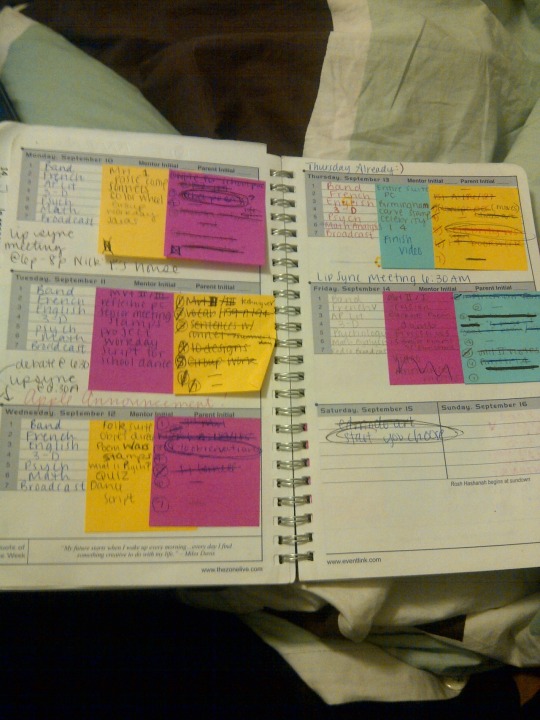
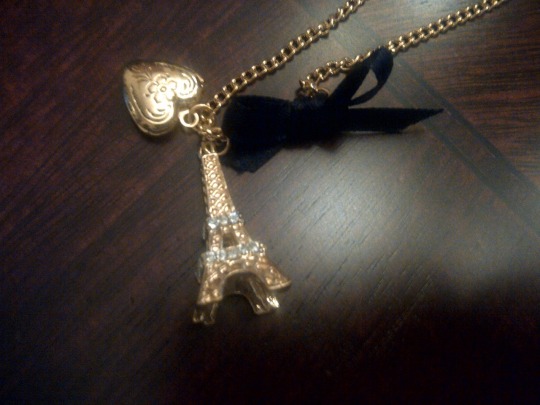
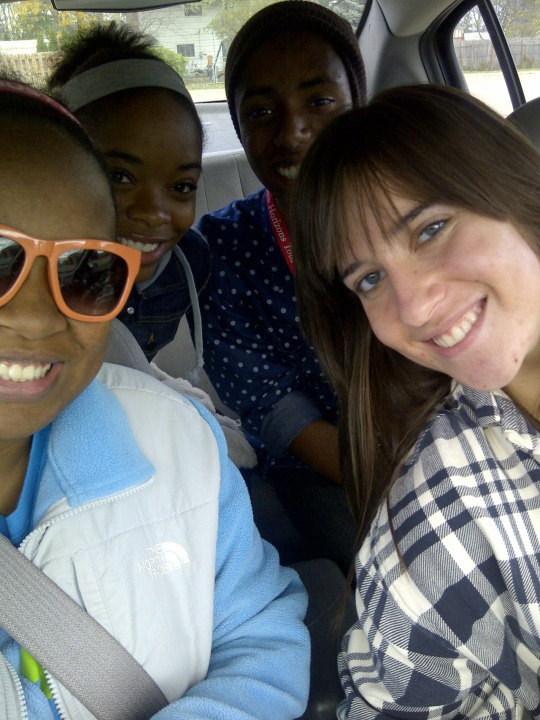
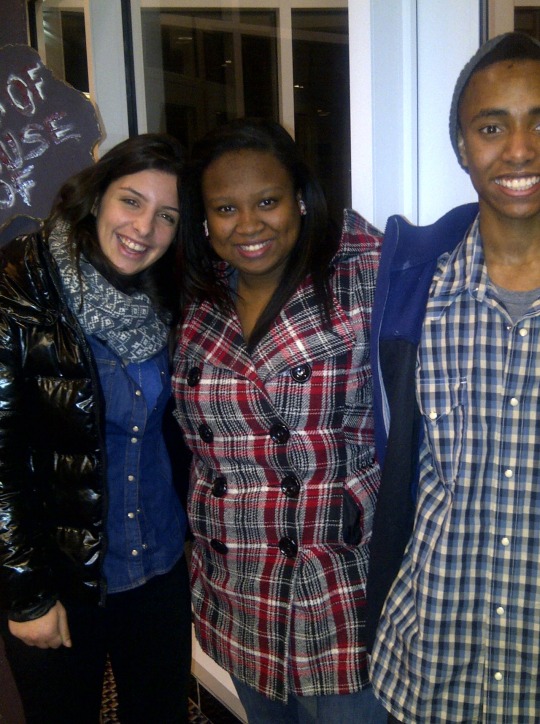
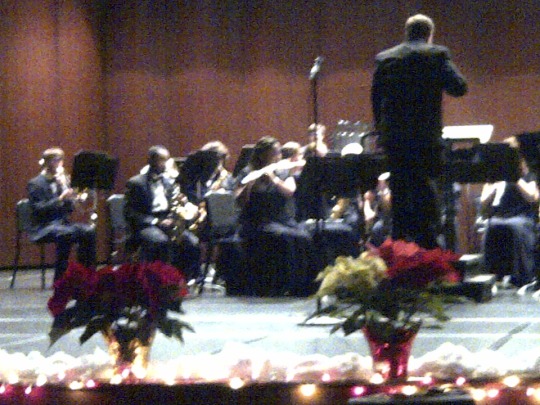
Brownie and Ziggy: They are always carried around with me because although they know exactly how to get under my skin, they make me laugh when nobody else can, and I don't know what I would do without them. Together, they weigh 35 pounds, but figuratively they weigh 100.
Agenda: This agenda is very light, but to me it weighs a ton on my brain. It's jam packed with my schedule and all the stressful assignments I have to complete. It has when I wake have to wake up early, when I have to stay after school, and inspirational messages such as "it's Thursday already!".
Best Friends and Family: I'd rather have a few absolutely real friends than a million fake ones; my best friends make up the majority of my life. They know what I go through, and they absolutely understand me and my life. They're my extended family and their value can't be weighed.
Eiffel Tower Necklace: This necklace represents the weight of learning french. It's a true passion of mine to be a multi-lingual individual. Mainly because of my background, I recognize that all different cultures have their own way of life. Learning languages and being able to interact with other people in their native language will be more rewarding than just seeing what their country has to offer.
Memories: This picture at the playThe Fall of the House of Usherdepicts the weight of memories. Events that happen, people who come in and out of my life, and accomplishments all start to add up; they all amount to memories.
Music: The picture of one of the concert's last year symbolize how expectation is what I carry. I'm expected to rehearse, perform, and deserve the chair that I sit in. It's literally on my mind everyday, having to stay practice to stay in the seat that I want. The expectation of doing well must weigh at least 75 pounds.
0 notes
Text
Favorite Poem
may my heart always be open to little birds who are the secrets of living whatever they sing is better than to know and if men should not hear them men are old may my mind stroll about hungry and fearless and thirsty and supple and even if it's sunday may i be wrong for whenever men are right they are not young and may myself do nothing usefully and love yourself so more than truly there's never been quite such a fool who could fail pulling all the sky over him with one smile
E.E. Cummings
2 notes
·
View notes



